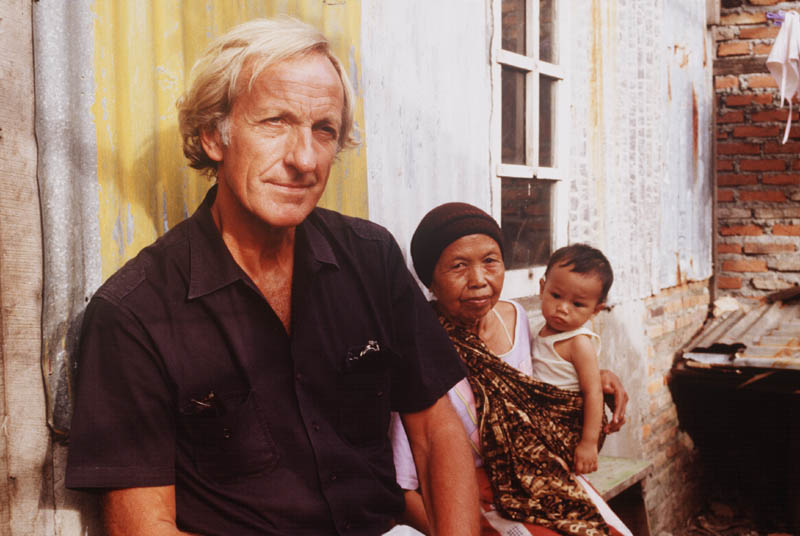At 7.30 in the morning on 3 June, a seven-month-old baby died in the intensive care unit of the European Gaza Hospital in the Gaza Strip. His name was Zein Ad-Din Mohammed Zu’rob, and he was suffering from a lung infection which was treatable.
Denied basic equipment, the doctors in Gaza could do nothing. For weeks, the child’s parents had sought a permit from the Israelis to allow them to take him to a hospital in Jerusalem, where he would have been saved. Like many desperately sick people who apply for these permits, the parents were told they had never applied. Even if they had arrived at the Erez Crossing with an Israeli document in their hands, the odds are that they would have been turned back for refusing the demands of officials to spy or collaborate in some way.
“Is it an irresponsible overstatement,” asked Richard Falk, the United Nations special rapporteur for human rights in the occupied Palestinian territories and emeritus professor of international law at Princeton University, who is Jewish, “to associate the treatment of Palestinians with [the] criminalised Nazi record of collective atrocity? I think not.”
Falk was describing Israel’s massacre in December and January of hundreds of helpless civilians in Gaza, many of them children. Reporters called this a “war”. Since then, normality has returned to Gaza. Most children are malnourished and sick, and almost all exhibit the symptoms of psychiatric disturbance, such as horrific nightmares, depression and incontinence. There is a long list of items that Israel bans from Gaza. This includes equipment to clean up the toxic detritus of Israel’s US munitions, which is the suspected cause of rising cancer rates. Toys and playground equipment, such as slides and swings, are also banned. I saw the ruins of a fun fair, riddled with bullet holes, which Israeli “settlers” had used as a sniping target.
The day after Baby Zu’rob died in Gaza, President Barack Obama made his “historic” speech in Cairo, “reaching out to the Muslim world”, reported the BBC. “Just as it devastates Palestinian families, the continuing humanitarian crisis in Gaza,” said Obama, “does not serve Israel’s security.” That was all. The killing of 1,300 people in what is now a concentration camp merited 17 words, cast as concern for the “security” of the killers. This was understandable. During the January massacre, Seymour Hersh reported that “the Obama team let it be known that it would not object to the planned resupply of ‘smart bombs’ and other hi-tech ordnance that was already flowing to Israel” for use in Gaza.
Obama’s one criticism of Israel was that “the United States does not accept the legitimacy of continued Israeli settlements . . . It is time for these settlements to stop.” These fortresses on Palestinian land, manned by religious fanatics from America and elsewhere, have been outlawed by the UN Security Council and the International Court of Justice. Pointedly, Obama made no mention of the settlements that already honeycomb the occupied territories and make an independent Palestinian state impossible, which is their purpose.
Obama demanded that the “cycle of suspicion and discord must end”. Every year, for more than a generation, the UN has called on Israel to end its illegal and violent occupation of post-1967 Palestine and has voted for “the right of the Palestinian people to self-determination”. Every year, those voting against these resolutions have been the governments of Israel and the United States and one or two of America’s Pacific dependencies; last year Robert Mugabe’s Zimbabwe joined them.
Such is the true “cycle” in the Middle East, which is rarely reported as the relentless rejection of the rule of law by Israel and the United States: a law in whose name the wrath of Washington came down on Saddam Hussein when he invaded Kuwait, a law which, if upheld and honoured, would bring peace and security to both Palestine and Israel.
Instead, Obama spoke in Cairo as if his and previous White House administrations were neutral, almost divine brokers of peace, instead of rapacious backers and suppliers of the invader (along with Britain). This Orwellian illogic remains the standard for what western journalists call the “Israel-Palestine conflict”, which is almost never reported in terms of the law, of right and wrong, of justice and injustice – Darfur, yes, Zimbabwe, yes, but never Palestine. Orwell’s ghost again stirred when Obama denounced “violent extremists in Afghanistan and now Pakistan [who are] determined to kill as many Americans as they possibly can”. America’s invasion and slaughter in these countries went unmentioned. It, too, is divine.
Naturally, unlike George W Bush, Obama did not say that “you’re either with us or against us”. He smiled the smile and uttered “many eloquent mood-music paragraphs and a smattering of quotations from the Holy Quran”, noted the American international lawyer John Whitbeck. Beyond this, Obama offered no change, no plan, only a “tired, morally bankrupt American mantra [which] essentially argues that only the rich, the strong, the oppressors and the enforcers of injustice (notably the Americans and Israelis) have the right to use violence, while the poor, the weak, the oppressed and the victims of oppression must . . . submit to their fate and accept whatever crumbs their betters may magnanimously deign suitable to let fall from their table”. And he offered not the slightest recognition that the world’s most numerous victims of terrorism are people of Muslim faith – a terrorism of western origin that dares not speak its name.
In his “reaching out” in Cairo, as in his “anti-nuclear” speech in Berlin, as in the “hope” he spun at his inauguration, this clever young politician is playing the part for which he was drafted and promoted. This is to present a benign, seductive, even celebrity face to American power, which can then proceed towards its strategic goal of dominance, regardless of the wishes of the rest of humanity and the rights and lives of our children.



